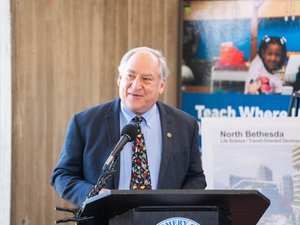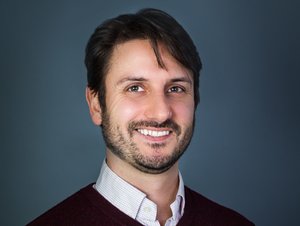Can you imagine 16 and 17-year-old boys and girls starting up their own companies with a well-developed business plan and budget in place? Neither could I until I attended the LearnServe Panels and Venture Fair last night.
LearnServe International promotes student entrepreneurship with their fellowship program. The fellowship program has kids focus on issues they are most passionate about and has them build a business plan around that innate fervor. Last nights event was held for the fellows to pitch their ideas to well-established entrepreneurs in the D.C.-metro area in order to receive seed money for their projects.
LearnServe was able to round up 150 panelists to give recommendations and feedback to the kids, a record amount. There were 30 different high schools, public, private, and charter from D.C., Maryland, and Virginia represented with 45 ventures presented to 15 panels.
The role of the panelists was to be supportive while also recommending conditions for improvement and suggestions for their future endeavors. Because all of the panelists in attendance were experts within their field, the incite students received was invaluable to their success.
I had the privilege of attending one of the panels to get the inside scoop on what goes on during the panel process with fellows. The panelists in my room were from a variety of backgrounds including a pediatrician, D.C.-based independent filmmaker, energy technologist, as well as representatives from ICF, IP3, Deloitte, Capitol One, M & T Bank, Thinking Beyond Borders, and the Ron Brown Scholar Program. Though there was enough funding to fund every student, panelists took their job seriously, critiquing each venture’s goals.
It's been a long time since I was in high school, but when we entered our specified classroom for the panel I was pretty shocked to find a high-tech smartboard, an intimidating outline of Einstein's head painted on the wall, and swirly moving chairs (that I got to spin in like a five-year-old). Before the fellows arrived I was tempted to touch anything and everything to see how they worked.
Each team had eight minutes to present and then the panelists were given eight minutes for a Q & A session. We were able to see two presentations, one on "Real Talk" and the second on "Vice Versa." Both teams spoke eloquently and with confidence I didn't think capable of such young people. I was pleasantly surprised to find their ideas align with thoughts I have had of my own. Fairly positive that if each panelist closed their eyes they would have a difficult time discerning how old each presenter was.
"Real Talk" was represented by a group of sophomore girls from Annandale High School who wanted to speak (literally) to their generation's ignorance as well as the underestimation of their age's knowledge. Teens use social media constantly, often revealing too much of their daily lives that no one is very interested in hearing. What most people don't understand is that teens know more than what they put out there. Yes, they may fit the entertainment obsessed stereotype, but they also yearn for news about current events, religion, and politics, there just isn't an outlet out there for teenagers to have a discussion about such topics. This is where "Real Talk" steps in to fill the vacuum. Not only was their idea such a positive plus for the youthful generation, but it also led the older folks in the crowd to gain more respect for teenagers, realizing that their past assertions were in fact incorrect. Don't judge a teen too quickly, that's the message that I received from "Real Talk."
The gentleman from Anacostia High School that spoke for "Vice Versa" had a completely different mission, to provide a mentorship program for preteen boys. His voice and message spoke beyond his years, identifying his own background as the reason he started his business. He wants to provide a mentor for kids that don't have a positive male figure to look up to as a role model. The most shocking part of his entire presentation was the statistic he threw at us, "80% of youth suicides come from fatherless homes." That alone sold me. Then when he spoke of the necessity to get 501c status, I was blown away. Yes, he forgot the "3", but that's besides the point. He knew what was required for his program to get to the next level, a nonprofit. It's amazing that a 17-year-old student already is grasping an understanding of the qualities of nonprofits that most adults are not well versed in.
Not only did LearnServe prove me wrong on many of my past assumptions of teens, but if I weren't just an intern and had a sustainable income I would most certainly be willing to back both ventures. The fact that LearnServe did such a wonderful job training and aiding in the creation of these startup businesses makes me wonder what more is to come from this organization.
Count me in for next year. This is an event I want to continue attending for years to come. What a reality check.




